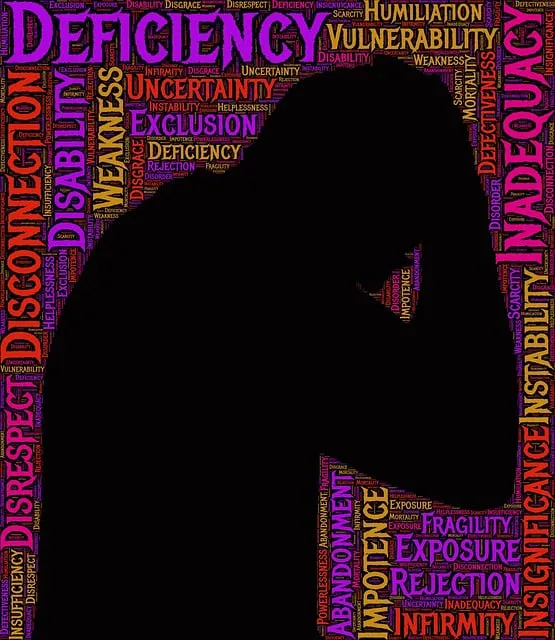The Centennial Kaiser Permanente mental health appointment center is revolutionizing care by integrating self-assessment tools that empower patients and providers alike. These tools, designed with adaptability, user-friendliness, and evidence-based practices, enhance mental wellness by promoting self-reflection, stress management, and resilience building. By incorporating cultural sensitivity and holistic approaches, the center fosters proactive mental health management, leading to improved emotional well-being for both patients and healthcare providers. This innovative strategy sets a new standard in patient engagement and outcomes at the facility.
Mental wellness self-assessment tools play a crucial role in modern healthcare, empowering individuals to actively manage their mental well-being. This article explores the development of such tools, focusing on their importance in contemporary mental healthcare. We delve into key considerations for designing effective assessments and present a case study highlighting their successful integration at the Centennial Kaiser Permanente Mental Health Appointment Center. By understanding these elements, we can enhance patient engagement and outcomes.
- Understanding the Need for Self-Assessment Tools in Modern Mental Healthcare
- Designing Effective Mental Wellness Self-Assessment Tools: Key Considerations
- Integrating Self-Assessments at Centennial Kaiser Permanente Mental Health Appointment Center: A Case Study
Understanding the Need for Self-Assessment Tools in Modern Mental Healthcare

In today’s fast-paced and demanding healthcare landscape, particularly at centers like the Centennial Kaiser Permanente mental health appointment center, there is a growing recognition of the importance of self-assessment tools in mental wellness. These tools empower individuals to actively participate in their own mental health care, fostering self-awareness exercises that can lead to significant improvements in emotional well-being and coping mechanisms. By integrating these assessments into routine mental health appointments, professionals like those at Kaiser Permanente can identify potential issues early on, whether it’s burnout setting in among healthcare providers or subtle shifts in patient mental states.
The development of effective self-assessment tools goes beyond mere diagnosis; they offer a chance to implement empathy building strategies and burnout prevention strategies for healthcare providers, creating a more holistic approach to care. This proactive mindset ensures that both patients and their caregivers are equipped with the necessary insights and skills to navigate life’s challenges, ultimately enhancing the quality of mental health services provided at institutions such as Kaiser Permanente.
Designing Effective Mental Wellness Self-Assessment Tools: Key Considerations

Designing effective mental wellness self-assessment tools is a multifaceted process that requires careful consideration to cater to diverse needs. At the Centennial Kaiser Permanente Mental Health Appointment Center, we’ve found that successful tools must be adaptable, user-friendly, and evidence-based. They should not only assess symptoms but also promote self-reflection and provide actionable insights for personal growth. Incorporating aspects of mental wellness coaching programs development and burnout prevention strategies for healthcare providers is crucial in creating comprehensive assessment tools.
These tools need to go beyond simple diagnostic criteria, encouraging users to explore their emotional well-being, stress management techniques, and resilience building. By integrating these elements, we aim to empower individuals, whether patients or healthcare professionals, to take charge of their mental health proactively. Just as important is ensuring cultural sensitivity, as a diverse user base may have varying perceptions of wellness and coping mechanisms. This approach aligns with the broader goals of promoting holistic well-being, similar to what Burnout Prevention Strategies for Healthcare Providers advocate for, ultimately fostering healthier communities.
Integrating Self-Assessments at Centennial Kaiser Permanente Mental Health Appointment Center: A Case Study

At the Centennial Kaiser Permanente Mental Health Appointment Center, a significant step towards holistic patient care was taken by integrating self-assessment tools into their routine practices. This innovative approach aimed to empower patients to actively participate in understanding and managing their mental wellness. The center recognized that traditional one-on-one therapy sessions often left room for improvement in terms of self-awareness and self-monitoring, crucial aspects of long-term mental health management.
By incorporating self-assessment exercises tailored to individual needs, the Centennial Kaiser Permanente center facilitated a more comprehensive evaluation process. Patients were introduced to tools designed to enhance their emotional intelligence, communication strategies, and empathy building skills. These assessments encouraged patients to reflect on their thoughts, emotions, and behaviors, providing them with valuable insights and promoting self-care practices. The case study of this implementation reveals improved patient engagement and outcomes, setting a new standard for mental health care at the facility.
The development of mental wellness self-assessment tools is a significant step towards enhancing modern mental healthcare. As evidenced by the successful implementation at the Centennial Kaiser Permanente Mental Health Appointment Center, these tools can improve patient engagement and accessibility to care. By incorporating key considerations such as simplicity, validity, and reliability, healthcare providers can ensure accurate assessments and tailored interventions. This case study highlights the potential for self-assessments to revolutionize mental health support, making it more convenient and effective for individuals seeking assistance.






